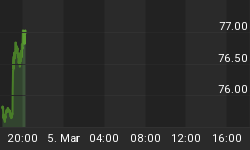As widely expected, the European Central Bank (ECB) lopped another 50 bps off its refi rate this morning, taking it to 2.0%. Rates have now come down by 225 bps in four successive steps, including a 75 bps cut in December, as the Euro-zone economy hits the skids and inflation drops sharply.
Chart 1
In his subsequent press conference, President Trichet acknowledged that economic data and surveys over the past month point to "a further weakening of economic activity around the turn of the year" and warned that Euro-zone demand is likely to be "dampened for a protracted period" with growth risks to the downside. He also acknowledged that the slowing economy has reduced inflation risks, and that the rate of inflation is likely to "fall significantly" in mid-year, in part because of base effects.
Chart 2
More important, however, was the way in which Trichet overtly tried to manage market interest rate expectations going forward. He noted that month-to-month data are likely to be quite volatile for a while, and that the bank does not react to such short-term figures. He warned that having fallen by mid-year, inflation could then start to pick up again in the second half. And, he stated that with the next policy meeting only three weeks away "we do not consider that February could be an important policy making meeting ... the next important meeting will be in March" when the bank will have new information and new projections.
So, the ECB assumes it is on hold next month, even if headline inflation drops further in January and the economic data continue to be grim.















